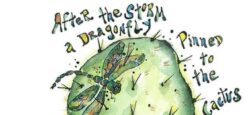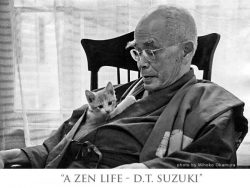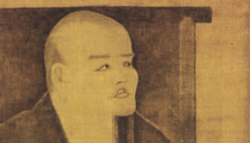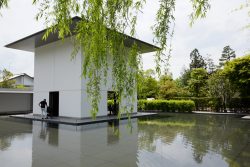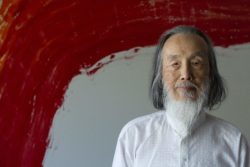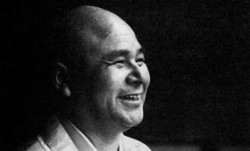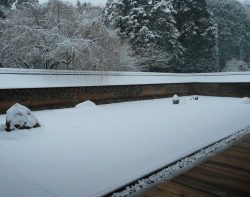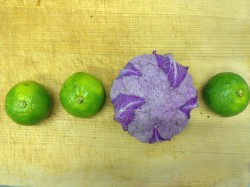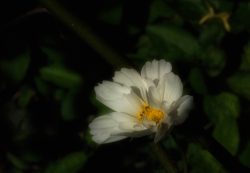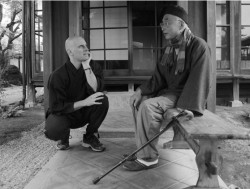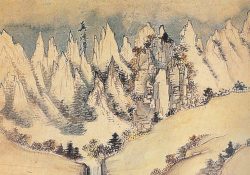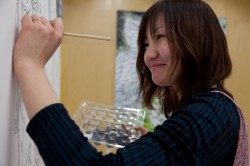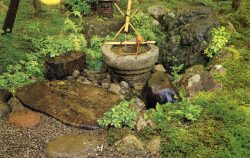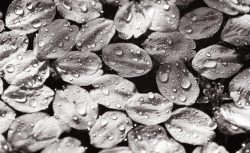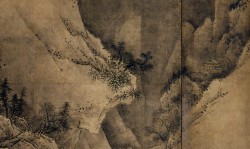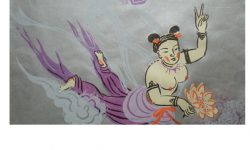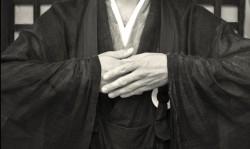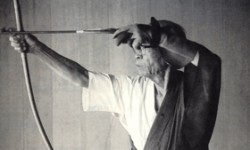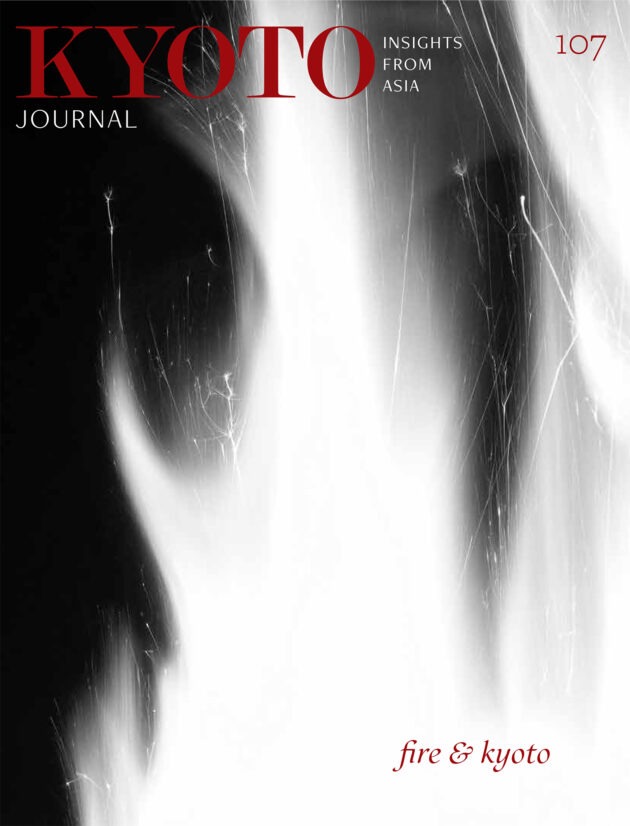Posts Tagged ‘Zen’
Trigger of Light
I live in the spare, high desert of the American Southwest, a land of apparent and often illusory emptiness, a blinding bowl of light that triggers one to write with an economy of words. The eye follows winding arroyos, mouse tracks, and blowing seed. The breath gathers momentum along ridges, faults, and prehistoric waterlines. Fossils scatter at the feet, clay shards glisten after a sudden rain.
Read MoreA Zen Life: D.T. Suzuki
As a Nowhere Man, Suzuki was the perfect catalyst for an emerging Western strata of neo-transcendentalists, heirs to Emerson, Thoreau, Whitman, yet burdened with a psychological stigma as America gazed West across the Pacific and envisioned an Asia in ruins.
Read MoreDogen in a Hammock
Robert Aitken, the late Zen priest of Honolulu’s Diamond Sangha, once wrote that “Drowsy contentment may be a condition close to realization. It is a kind of emptiness, of nondifferentiation, where the ten directions melt: inside and outside become one.”
Read MoreThe view to Mt. Sumeru: Donald Richie on D.T. Suzuki
‘I think that Dr. Suzuki is for Zen what St. Paul is for Christianity. He was “a publicist.”’
Read More“We all have a brush”
“In Aikidō, the other guy may be big and strong, and you may be thrown down. But you have a chance to throw down the opponent, too. We had the nuclear arms race, that was probably the worst scenario of global collective suicide that we had faced as humanity, and we reversed it.”
Read MoreTumbling Assumptions
The author says she embarked on this year in Japan in order to undertake a spiritual practice of her own. She must occupy herself while her husband seeks Soto Zen priestly credentials by training in a nearby monastery, so she joins a pottery class as a deshi (disciple) of the elderly female teacher. But she cannot seem to make the dirt and water come together to make a smooth clay, either physically or metaphorically.
Read MoreBe a Fool! Fukushima-Roshi on Zen in America and Japan
“…understanding Zen through the intellect is a mistake. That is why in the first three years of my own training, Shibayama-roshi kept on telling me for a whole year, “Be an idiot! Be a fool!”
Read MoreKaresansui and the “inelectable and illuminative thread”
“To begin with a chawan in the palm of one’s hand and end up imagining a garden, poem or painting reveals the richness inherent in Japanese culture.” — Allen S. Weiss
Read MoreThe Wisdom of Shōjin Cooking
Shōjin ryōri is rooted in the concept that the earth and body are inseparable. It is only through attaining a perfect symbiosis with the land that we can truly reap the benefits of the earth.
Read MoreThe Pilgrim Journey: A Myth Of Buddha
In 1973 I went looking for a Buddha to come to my, and even maybe our, rescue. I wanted to actually meet the guy, hear his voice…Of course, I didn’t find him. I found me looking for him.
Read MoreWe Promise to Fix it Back
Will this catastrophe in Japan change us and lead to a more innovative, caring and interconnected way of living? Will the outbreaks of altruism and civic enthusiasm propel us to take similar steps? Will we demand ingenious forms of accountability?
Read MoreWriters and the War Against Nature
Although human beings have interacted with nature – both cultivated and wild, for millennia, and sometimes destructively so, it was never quite like “war.” It has now become disconcertingly so…
Read MoreZen & the Art of Rejuvenation
Taizo-in launched its groundbreaking ‘Fusuma-e Project’ in the spring of 2011. The Zen temple is commissioning a young, unknown Kyoto-based artist to compose large sumi-e ink paintings on 64 new sliding doors, or fusuma…
Read MoreThe Epic of Tea: Tea Ceremony as the Mythological Journey of the Hero
TEA
BY DANIEL R. KANE
“Why do you study Tea?” The usual answers perhaps are enough: “It is an aesthetic exercise; a Zen discipline; a unique means of social interaction.” Yet, I have wondered if there might be some other attraction to Tea; something not so apparent…
Read MoreOf All the Wild Sakura: The Journals of Gary Snyder
My first stay in Japan was from May of ’56 to August ’57. I left to get a change of air, to reflect on my Zen practice, and to earn some dollars.
Read MoreNature and Culture in Japan
Japanese cultural tradition hides a vast storehouse of notions and practices that may be helpful in establishing a culturally-grounded eco-philosophy…
Read MoreAwakening the Goddess Within: An Interview with Mayumi Oda
Graphic artist Mayumi Oda’s cultural, spiritual, and artistic odyssey has taken her through many lives, eras, countries, and incarnations…
Read MoreA Year at Eiheiji
Eiheiji’s reputation as the toughest Zen training center in Japan is born out in this memoir…after Nonomura passes through the Dragon Gate with seven other acolytes (three of whom will end up in the hospital within the first six months), he enters a kind of “boot-camp” hell…
Read MoreShakuhachi and Zenga
ART, MUSIC
BY PRESTON HOUSER
The player of the Japanese bamboo flute seeks to display his spirit through musicianship—even if only in a single note, a single exhalation…
Read MoreThe Mystery of Mastery
It is not a coincidence that disciples of Zen who have achieved an intuition that is spiritual and transcendental and yet strikes decisively at the very heart of the physical world, are referred to as Masters…
Read More
